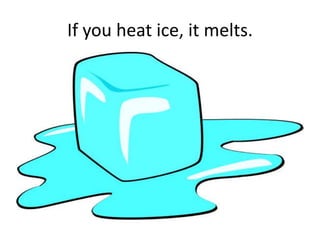(bonus)
If I wake up early:
A. I would had been on time for school.
B. I must have been on time for school.
C. I will be on time for school.
C. I will be on time for school.
If I wake up early, I will be on time for school.
If you don't hurry:
A. you wouldn't lose the train.
B. you will lose the train.
C. you are losing the train.
B. You will lose the train.
If you don't hurry, you will lose the train.
If she keeps training:
A. She will get better at soccer.
B. She might have gotten better at soccer.
C. She will got better at soccer.
A. She will get better at soccer.
If she keeps training, she will get better at soccer.
We might get in trouble:
A. if they don't help us out.
B. if they didn't help us out.
C. if they don't helped us out.
A. if they don't help us out.
We might get in trouble if they don't help us out.
We use the first conditional to talk about future things that are likely to happen. True or False?
True
I might help her out:
A. If I finish my homework.
B. If I finished my homework.
C. If I had finished.
A. If I finish my homework.
I might help her out if I finish my homework.
If you go out without your sweater:
A. You will got a cold.
B. You have got a cold.
C. you might catch a cold.
C. you might catch a cold.
If you go out without your sweater, you might catch a cold.
Things will only get worse:
A. if he doesn't helps Adelaida.
B. if he helps Adelaida.
C. if he helped Adelaida.
B. if he helps Adelaida.
Things will only get worse if he helps Adelaida.
Will they be safe:
A. if I take them home?
B. if I took them home?
C. if I takes them home?
A. if I take them home?
Will they be safe if I take them home?
This sentence is an example of the first conditional:
No, it is not / False
If I do my homework:
A. I will get good grades.
B. I will give good grades.
C. I will got good grades
A. I will get good grades.
If I do my homework, I will get good grades.
If you take your medicine:
A. You couldn't feel better.
B. You will feel better.
C. You could have felt better.
B. You will feel better.
If you take your medicine, you will feel better.
He might act a little shy:
A.if they talked to him like that.
B.if they are talking to him like that.
C.if they talk to him like that.
C.if they talk to him like that.
He might act a little shy if they talk to him like that.
If they let us do this:
A. we could have earned some money.
B. we could earns some money.
C. we could earn some money.
C. we could earn some money.
If they let us do this, we could earn some money.
The following sentence is an example of the first conditional:
- If it rains tomorrow, I’ll stay at home.
Yes, it is an example of the first conditional / True
I will be embarrassed:
A. If I had failed this mission.
B. If I failed this mission.
C. If I fail this mission.
C. If I fail this mission.
I will be embarrassed if I fail this mission.
Will they stop that:
A. If you give them your money?
B. If you are giving them your money?
C. If you had gave them your money?
A. If you give them your money?
Will they stop that if you give them your money?
If it rains:
A. She wouldn't have gone on her date.
B. She won't go on her date.
C. She won't goes on her date.
B. She won't go on her date.
If it rains she won't go on her date
If we go to the cinema tomorrow:
A. they could come with us.
B. they could be coming with us.
C. they could have come with us.
A. they could come with us.
If we go to the cinema tomorrow they could come with us.
This IS NOT the structure we use for the first conditional:
If + Present Simple + MODAL VERB + infinitive
False, it is the structure we use
I may need some medicine:
A. If I had taken care of myself.
B. If I don't take care of myself.
C. If I didn't took care of myself.
B. If I don't take care of myself.
If I don't take care of myself, I may need some medicine.
You will show them your talent:
A. if you couldn't felt confident enough.
B. if you had felt confident enough.
C. if you feel confident enough.
C. if you feel confident enough.
You will show them your talent if you feel confident enough.
Will he leave us:
A. if we told him the truth?
B. if we tells him the truth?
C. if we tell him the truth?
C. if we tell him the truth?
Will he leave us if we tell him the truth?
If they lose against Spain:
A. We could have never forgotten this day
B. We shall never forget this day
C. We shall never forgets this day
B. We shall never forget this day
If they lose against Spain, we shall never forget this day.
We CAN NOT use words like shall, can, or may when using the first conditional. The word WILL cannot be replaced.
False, we can use other words like shall, can or may instead of will.